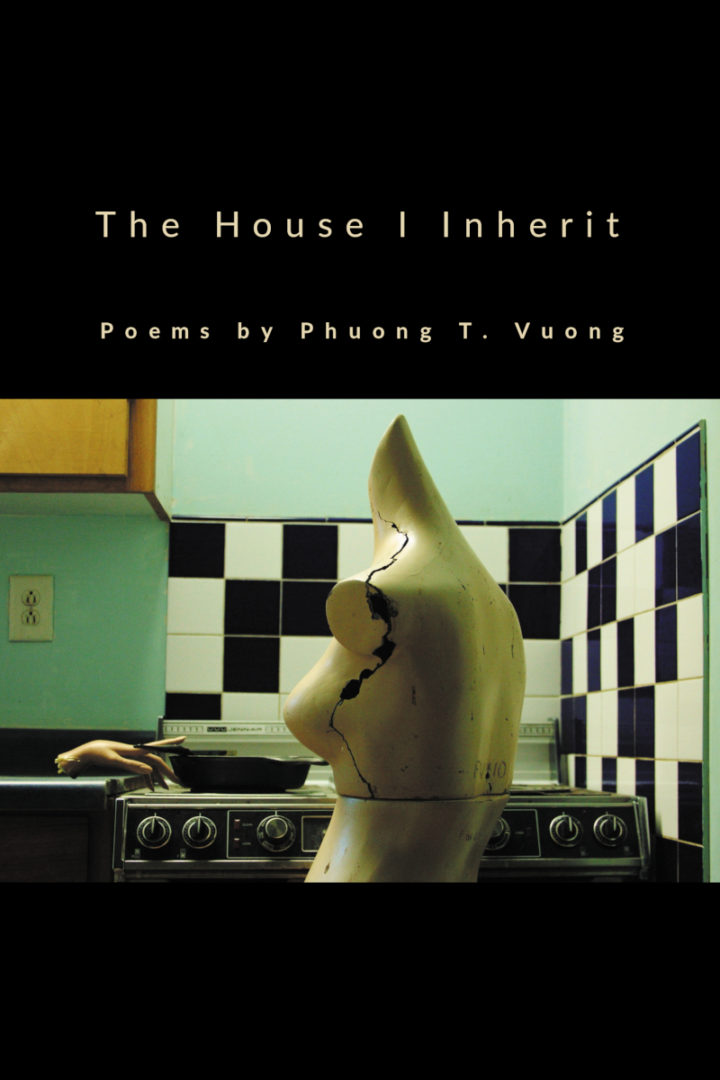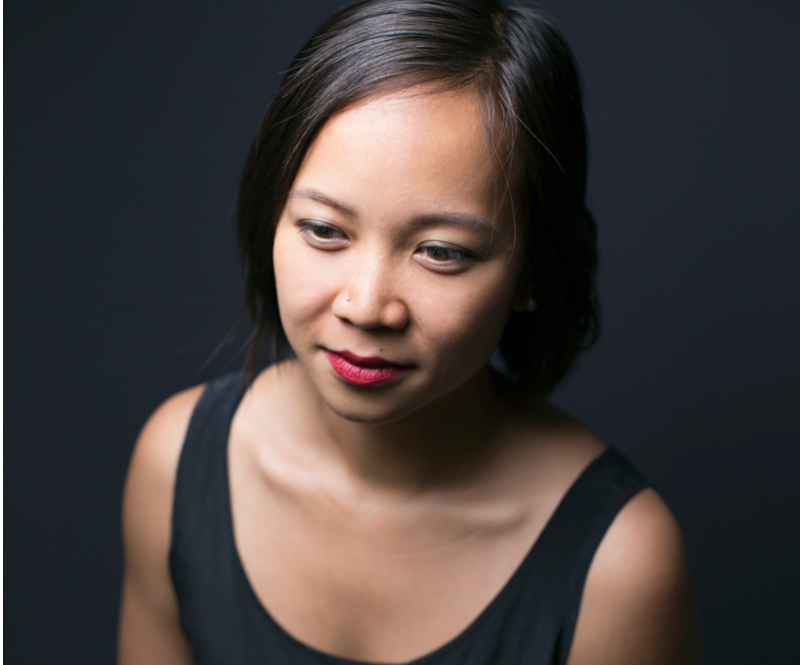
“don’t you dare speak of this
grief tied around our mouths
the most effective gags are the ones
we tie ourselves
make silence a ritual
name it Brave”
– from “I. Altars”
Daring to speak of this and so much more, Phuong T. Vuong opens The House I Inherit. Part I, “Altars,” breaks the silence, asks questions, engages the past. In “What my father gives me,” Vuong writes:
my father who gives me
salted lemons
makes offerings
when my silence seems
too prickly for much else
my father so good
at surviving
even his preserved lemons
stay afloat in salt water
Through both what is said/spoken and unsaid/silent, Vuong gradually reveals poem after poem—67 in all, in three cohesive parts that form this whole, integral book. These are unsettlements, invocations, reflections, celebrations, responses, becomings, rages, shames, and healings. They evoke. They challenge. They place us in moments of frustration. Love. Tension. Resolution. Discovery. In them, Vuong explores a wide range of emotion and experience, grounding her work in immigrant/refugee/diasporic existence and moving beyond it into new worlds, new visions. In “Forge” she writes:
i dive off cliffs of my own paintings
swim in the deafening silence of my own home
oceans cry a face of salted gems
gifts for bà nội
and children not yet made
i look back
this other watery passage
briny cemetery
no one remembers
our Pacific diaspora
lost at sea as boat people
but i believe in the past
i tell the stories
this ridiculous act
to parents who just wanted food on the table
i mold new worlds
forget my thin fingers small hands my woman’s heart
forge a new steel a saltwater organ
new thing for loving and knowing because i a woman can
And I am moved. I turn Vuong’s “new worlds” over and over in my hands. My heart. My mind. I am drawn inward and across the Pacific Ocean. With her words, through her words, I brush my own brown body against others’. She writes, “we meander through poems”, and I do. I think of love and loving. Of joy(s) and pain(s). Of race. Of irony. I think of Sophia E. Terazawa and her essay “Rites of an Old War,” where she writes, “What I am trying to say is that it hurts. Loving a white man hurts.” Terazawa asks questions of our love and our loving, of what it means to love and risk in silence and in speaking. Vuong’s poems work with and through and around these questions, compelling us to consider our bodies—our knees, skin, fingers, and limbs—and to consider the ramifications of our love(s).
The texture of Vuong’s words takes me right to the tangible, right to the corporeal self in poems such as “Brown love” and “Flesh” and “I want you to.” In “Loving in the borderlands,” she writes:
you and i
borders wide as the Pacific
the expanse of beach to a boat
rocky desert to a 20-foot wall
the bombing of countries and tribes
or distant like our hunched backs
and
so for now
you and i sit
in this little peace
neither here nor there
not yet arriving nor departing
loving as the children of migrants
Vuong touches the visceral through successive and powerful images. This, from “In the morning light”: “like dawn on my thigh/a morning meditation on yellow”. I read this and feel the sun’s rays on my own leg. I reflect. I meditate. And this, from “Ocean tide”: “alone but you occupy one/remember our sleep/my leg crossed over your brown torso.” I am there, feeling the rasp or smoothness or slide of skin. The complexion of brown torsos, crossed over, being crossed. Vuong’s words are vital and textured. They are full of being.

In “Write into it,” Vuong utilizes repetition and strong imagery to bring the reader to and across the threshold—an existential awakening, a birthing—to the immediate Now.
She writes:
i am writing myself
i am writing myself
i am writing myself into
myself into
into a line
they didn’t say existed
into a legacy of open-mouthed women
whose screams they beat
gagged into shame
and
i am writing myself
i am writing myself
into you
teeth bared
fists readied
fingers still soft
for peeling peas
and holding babes
if i choose
i am writing myself into
i am writing myself
myself
into
being
In the epigraph, Vuong quotes Stuart Hall. “Cultural identity,” Hall writes, “is a matter of ‘becoming’ as well as ‘being.’ It belongs to the future as much as to the past.” It’s a fitting beginning to Vuong’s book.
Part I, “Altars,” brings us to the past. To family. To history and memories. To the shared and isolated. To specific scars and to generalized, vague, elusive traumas—the legacies of our diasporic and refugee pasts. Our war-torn, war-stained, war-silencing heritage. Our ancestry. And more. Part II, “Self-Portraits,” goes further. Deeper. Inward. In “On remembering—note to self” Vuong writes,
“you could live many lives excavating that which is hidden, lost, or silenced. but sometimes the past has been there all along; the places your bones ache, those names you know, those you do not, why your father sleeps fitfully, how you know to sauté shallots in oil, carry guitar like life preservers, and green thumb like machete and spoon. you know why we need the land and how we always make due. trust in that. the love of heat and humidity.”
There is this remembering. And more. Part III, “Doors,” takes us to love. To fruit. To possibility. Fecundity. And more.
As a whole, The House I Inherit propels us inward and outward. To the past. To the future. To the oceans. To our collective history. And to our families. The individuals. The histories. The legacies. What we inherit. At the same time, it ties us to our present(s), to the places we inhabit. To our loves. Our bodies. Our futures. Our fears. Our stories. What we pass on.
Vuong intertwines specific, anchoring imagery along with ephemeral, transitory existence(s) to remind us of ourselves and our surroundings. Our past across the Pacific Ocean. Maybe in Huế. Our present. Maybe in Fruitvale, Oakland. And our future(s) are here too, in the stories and poems that we tell and through which we “meander,” the worlds that Vuong has “forged.”
The House I Inherit
by Phuong T. Vuong
Finishing Line Press. $19.99.
CONTRIBUTOR’S BIO
Paul Bonnell was born in Buôn Ma Thuột, Vietnam. He has lived in the Philippines, Malaysia, and the United States. He teaches, coaches, writes, plays music, and climbs in northern Idaho, where he lives with his family. He is interested in poetry, essays, fiction, hybrid art, the Vietnamese Diaspora, the Chăm, the Bru, mountain culture, biopolitics, and transracial/transnational adoption.


